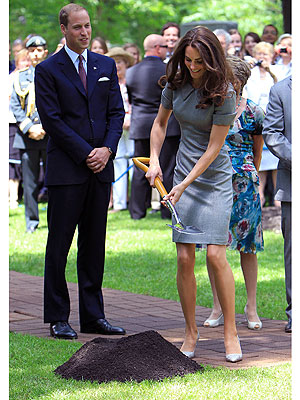A summer that looks a whole lot more like winter has travelers across the West scrambling to revise their Fourth of July itineraries - or at least their packing lists.
Ski poles are replacing fishing poles at popular hiking and camping spots where late-winter snowstorms blanketed Western mountains from the Rockies to the Sierra Nevada.
"A lot of people are calling it the trifecta day, where they're going to ski in the morning, mountain bike in the afternoon, maybe do something on the lake in the evening," said Julie Mauer, a spokeswoman at Sierra ski resort Squaw Valley, which saw record-breaking snowfall this season. The resort plans to open four ski lifts on the upper mountain and promises free commemorative July 4 t-shirts to the first 5,000 guests who show up on Monday.
At Crystal Mountain, south of Seattle, spokeswoman Justus Harris said she expected to see "a lot of bikini tops" out on the slopes. The National Weather Service is predicting mostly sunny skies on the mountain on July 4, with a high near 59 degrees. The mountain hasn't been open this late in the year since 1999.
An unseasonably strong low-pressure system has brought above-average rainfall to California's Central Valley and the Sierra earlier this week, and the National Weather Service on Thursday issued a flood warning for
much of the region, cautioning that warming temperatures leading into the weekend will accelerate snowmelt and cause rising water levels in rivers and streams.
At lower elevations, the spring thaw has led to surging waterways, turning normally easy crossings perilous and raising flood concerns.
While ski resorts are hoping to entice visitors with the prospect of dense snow combined with mild temperatures, campers and hikers are less enthusiastic about the wacky weather. Popular campgrounds at Yosemite National Park are closed and visitors have been warned they may encounter snow, high water on roads and slippery mud. Flood warnings are in place in some areas.
Fresno County resident Jan Woertendyke, 56, and her fiance - both experienced hikers - were planning a weekend backpacking excursion to Yosemite's Ostrander Lake, which sits at about 8,500 feet. But after seeing ominous-looking photos posted online by other hikers last week, the couple decided to cancel their trip.
"I can't see hiking uphill with a 30-pound pack on my back on a solid trail of snow the last mile," said Woertendyke, of Clovis.
It's also changed plans for the first time in six years for fellow Clovis resident Jason Telaro, who makes an annual three-day backpacking trip through the rugged Yosemite National Park backcountry to celebrate his July 4 birthday.
"I'm also an avid skier, so when I noticed all the snowfall this year, I anticipated the problems a little bit. But definitely not for the Fourth of July weekend," said Telaro, who now plans a one-day camping trip in a less treacherous wilderness area.
Several of Yosemite's popular high-country campgrounds, cabins and other amenities remain closed. Although all trails are open, park officials say visitors should be prepared to encounter snow, high water crossings and slippery mud.
At Stanislaus National Forest, located primarily in Tuolumne County adjacent to the northwestern portion of Yosemite, much of the terrain above 8,000 feet remains blanketed in snow, while high- and fast-running creeks and overflowing rivers are blocking access to some backcountry areas.
Further north, snowplow crews at Lassen Volcanic National Park recently crested the main park road's summit at 8,500 feet, pushing through 20 feet of snow. They're still clearing 15 feet of snow as they try to reopen State Highway 89 by July 8, park spokeswoman Karen Haner said. Some of the most popular hiking trails are buried and aren't expected to reopen for weeks.
Weekend visitors to the northeastern California park are being encouraged to bring special equipment if they plan to attempt to climb the nearly 10,500-foot Mount Lassen.
"It will be a snow excursion - it wouldn't be like hiking on a trail. People will have to have crampons and an ice ax," Haner said.
Meanwhile, snow-sport enthusiasts will have their pick of several popular Western destinations.
California's Alpine Meadows will be open Independence Day weekend for the first time since 1995, and for just the second time in its 50-year history, said spokeswoman Rachael Woods.
At Snowbird in Utah, where upper runs have remained open every weekend, resort operators are even considering trying to extend the season through July 24 for Pioneer Day, a Utah state holiday that generally sees a lot of travel, said spokeswoman Emily Moench.
"I keep telling people how good the skiing still is, which they find unbelievable until they actually get up here," she said.
___
Associated Press writers Gosia Wozniacka in Fresno, Calif., Don Thompson in Sacramento, Phuong Le in Seattle, and Josh Loftin in Salt Lake City contributed to this report.






 French finance minister Christine Lagarde was today announced as the first female leader of the
French finance minister Christine Lagarde was today announced as the first female leader of the 
 Putting an official end to their under-the-radar romance,
Putting an official end to their under-the-radar romance, 




 Finding herself having to file for bankruptcy, 'Real Housewife' Sonja Morgan is looking to ex-housewife Bethenny Frankel for business advice.
Finding herself having to file for bankruptcy, 'Real Housewife' Sonja Morgan is looking to ex-housewife Bethenny Frankel for business advice.





 Five years ago you could be forgiven for thinking that the best networkers only used face-to-face networking methods and tools. In fact, it was only this week, that I was having a discussion, rather ironically on Twitter, with a coach who told me that the best networkers only used face-to-face networking. Perhaps even worse than this rather short-sighted view, was her belief that small business owners didn?t have time to be using online networking as they were too busy running their own business. Mmmm. Let?s just say that I didn?t agree, and I will explain why in this article.
Five years ago you could be forgiven for thinking that the best networkers only used face-to-face networking methods and tools. In fact, it was only this week, that I was having a discussion, rather ironically on Twitter, with a coach who told me that the best networkers only used face-to-face networking. Perhaps even worse than this rather short-sighted view, was her belief that small business owners didn?t have time to be using online networking as they were too busy running their own business. Mmmm. Let?s just say that I didn?t agree, and I will explain why in this article.




